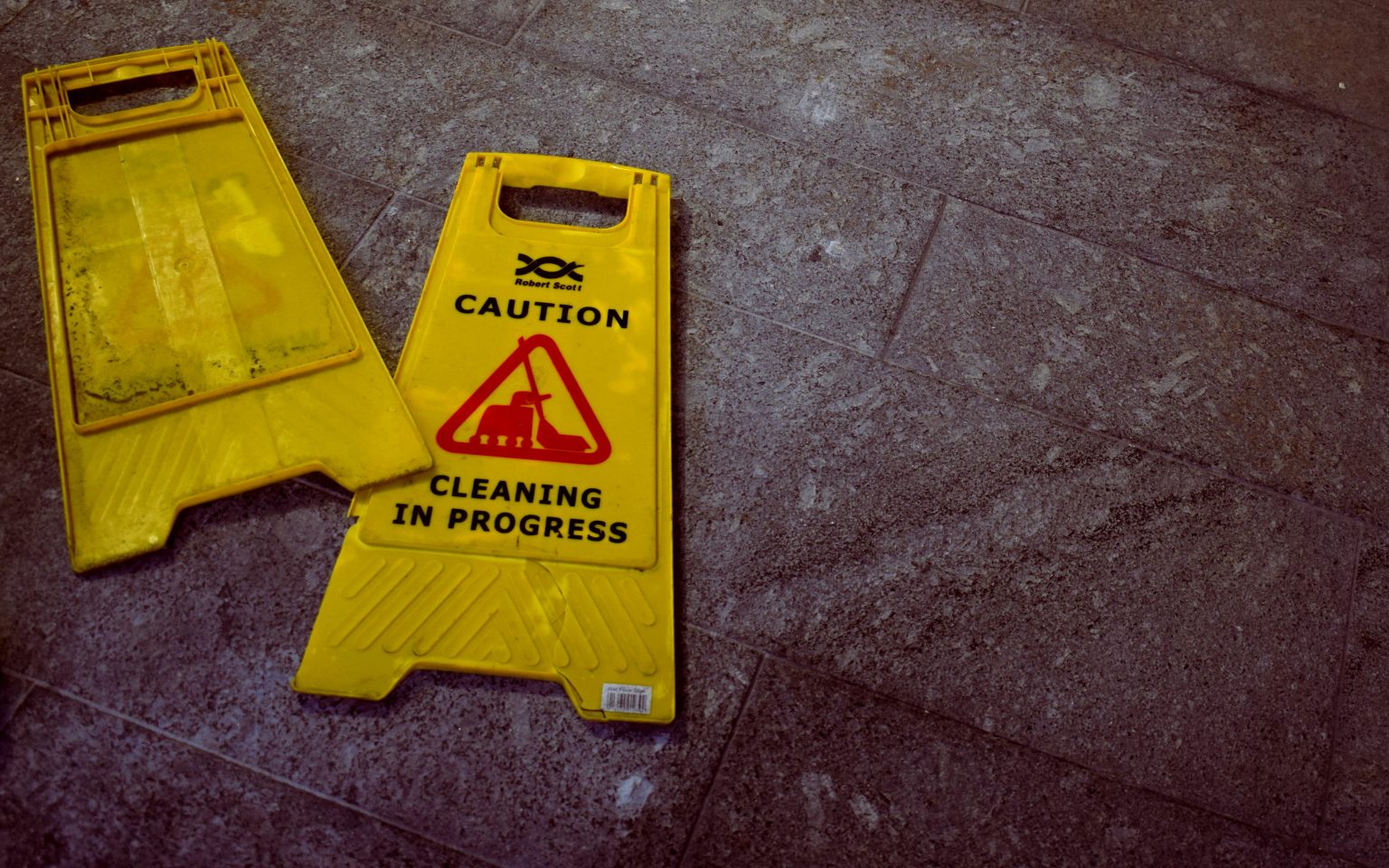Just as the captain of a ship is responsible for its crew, so is an employer responsible for the health and safety of its employees, customers, and members of the public.
But the term “health and safety” can often seem a vague and broad term when it comes to employer responsibility and it can be difficult to write policies and procedures in full the line between statutory duty and the personal responsibilities of an employee.
To make the abstract actionable and specific, let’s outline employers responsibilities for health and safety.
What Legislation Covers Safety In The Workplace?
As an employer, health and safety is not a topic you want to fall behind on. Between 2020 and 2021 the Health and Safety Executive (HSE) issued £26.9 million in fines, with the average fine at £145,000. That’s a steep price to pay for neglecting your duties.
There are a handful of health and safety laws that apply across the entire workforce, regardless of sector. Below are the most important ones employers should have at least a basic understanding of.
The Health And Safety At Work Act 1974
Employers responsibilities for Health And Safety At Work Act 1974 (HASAWA) is by far the legislation with the broadest reach. Duties described within HASAWA cover obligations of both employers and employees. Below are the main responsibilities of both parties:
What are main responsibilities of the employer under the health and safety at Work Act 1974?
- Provide a safe system of work
- Provide a safe place of work
- Provide safe equipment, plant, and machinery
- Have safe and competent people working alongside you. Employers are also liable for the actions of their staff and managers
What are employee responsibilities in a safe workplace?
- Take care of their own health and safety and that of others who may be affected by their actions at work
- Not disrupt or interfere with anything put in place to aid in health and safety at work
- Pay the requisite fines and penalties due to health and safety violations
The Workplace (Health, Safety, Welfare) Regulations 1992
The duties stipulated in these regulations apply to most workplaces. Businesses are required to provide employees and non-employees on their premises access to safe and sanitary facilities. This includes ventilation, heating, lighting, drinking water, personal storage, rest facilities and having sufficient space. It also covers the accessibility of the premises to individuals with disabilities.
Display Screen Equipment Regulations (DSE) 1992
It’s not only important to remind your employees to stand, stretch, and walk away from their desk occasionally. Under the Display Screen Equipment (DSE) Regulations, employers must:
- Do a DSE workstation assessment
- Reduce risks, including making sure workers take breaks from DSE work to do something different
- Provide an eye test if a worker asks for one
- Provide training and information for workers
The Personal Protective Equipment At Work Regulations 1992
According to this law, employers are required to provide adequate personal protective equipment (PPE) to employees who need it, free of charge, where risks cannot be controlled by other means. After 6 April 2022, duties will extend to include independent contractors. Essentially these are workers who are employed on an irregular or casual basis, like temporary or gig workers.
Reporting of Injuries, Diseases and Dangerous Occurrences Regulations (RIDDOR) 1995
Under RIDDOR, employers are legally mandated to report any deaths and major injuries, as well as dangerous occurrences. Dangerous occurrences are defined as “incidents with a high potential to cause death or serious injury, but which happen relatively infrequently”. These are typically incidents that did not cause death or injury, but could have. For instance, if a platform fell even when it wasn’t in use.
General Duties of Employers
Some of the duties obligated by the laws above can be grouped into general guidances, which we’ve referenced in each section. These are the minimum obligations employers should carry out to stay compliant and keep their workplace and employees safe and healthy.
Risk Assessment
Employers are legally required to conduct assessments to identify all existing and potential risks at work. This can include the obvious dangers such as the use of chemical cleaning agents, to more subtle dangers such as office workers straining themselves from reaching atop high shelves for heavy supplies. Identifying these risks allow businesses to plan and mitigate risks. A template from the HSE can help employers figure out how to turn findings into safety controls.
Establish Emergency Procedures
In an emergency, the difference between life and death can come down to seconds. Preparedness minimises loss to the business and saves lives. How you act the first few minutes heavily influences survival, which is why employees need to be ready to spring to action when needed. Part of an employer’s duties is to plan emergency procedures and ensure employees are aware of their roles during a crisis.
Provide Adequate Safety Training
Safety training is one of the chief duties of employers. However, some still fall short of the mark. The health of thousands of workers still suffer from something as seemingly simple as poor handling of heavy loads.
Ensure Employees Have Access To Sanitary Facilities
Adequate sanitation facilities at work go beyond a clean toilet and a working flush. According to guidance from the Workplace (Health, Safety, Welfare) Regulations 1992, employees need access to cold and hot water, soap, and toilet paper. There needs to be enough wash basins and toilets. These amenities need to be at a reasonable distance. They also need to be accessible for people with disabilities.
Reduce Fall And Tripping Hazards
Tripping is the leading cause of non-lethal injuries at work. Slippery flooring, cables snaking across high traffic areas, a piece of flooring that’s chipped away–seemingly innocuous conditions can lead to serious and preventable injuries. It is an employer’s duty to remove obstructions and tripping hazards. Arrangements should be provided when a risk can’t be completely removed, like providing handrails near steep slopes.
Provide Provisions For Disabled Persons
Under the HASAWA, it is the duty of employers to secure the safety and health of every employee against harm. That, of course, includes workers with disabilities. Employers should work closely together with their disabled employees to make sure their needs are factored into risk assessments and safety systems.
Create A Safe And Comfortable Workspace
Employees have the right to work in safety and comfort. Yet many still work in needlessly hazardous conditions. It’s an employer’s obligation to give employees a workspace that is hygienic, well-ventilated and lit, and kept at a reasonable temperature. According to the HSE, the minimum should be at least 16 degrees Celsius.
Report Accidents And Deaths
Under RIDDOR employers are mandated to report deaths, major accidents, and near-miss incidents. Companies are still largely underreporting incidents. Only 51,211 non-fatal injuries were reported through RIDDOR in 2020/21. However, there were three times as many self-reports of injuries during the same period, according to the Labour Force Survey. The consequence for non-compliance, depending on the severity of the incident, can be tens of thousands of pounds, or in some cases even result in a custodial sentence.
Who Enforces Health And Safety Regulations?
The main governing body that legislates and enacts workplace safety regulations is the Health and Safety Executive. The agency is supported by local authorities, whose powers include conducting inspections and shutting down machinery or equipment that they deem unsafe. Inspections can be unannounced and can be carried out with or without the presence of police.
We’re Here To Help
Health and safety is a serious matter. Any oversight can result in unavoidable tragedies, massive fines that can sink your business, and in the worst cases of employer dereliction of duty, could land you with a prison sentence. With the numerous laws in place it can be challenging to keep track of all your duties and make sure you’re meeting them adequately.
Our team is well-versed in health and safety polices, procedures & legislation, including industry-specific laws. We can help you stay compliant and keep your employees protected against undue risk.



